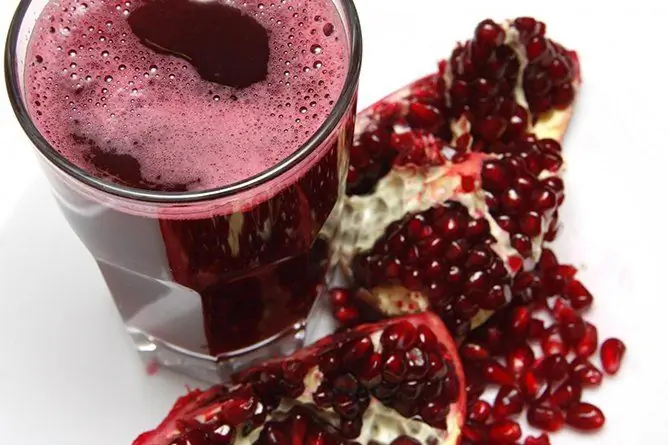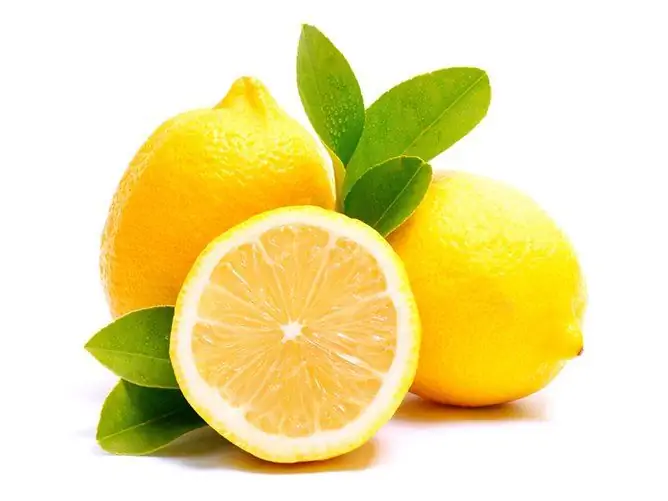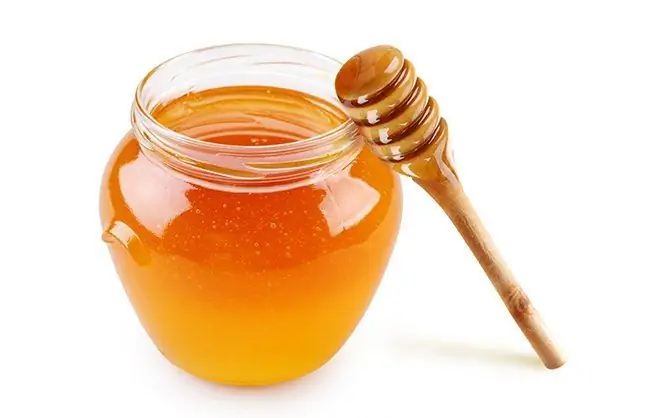- Author Rachel Wainwright wainwright@abchealthonline.com.
- Public 2023-12-15 07:39.
- Last modified 2025-11-02 20:14.
Does ginger increase blood pressure or lower it?
The content of the article:
- Ginger increases blood pressure
- Ginger lowers blood pressure
- Ginger-based blood pressure drug recipes
- Video
Does ginger raise blood pressure or lower it? This is not an idle question, since ginger is one of the most popular spices, and in oriental medicine it is also a drug. It is known that hot and pungent spices increase blood pressure, and therefore they are not recommended for use in hypertension. Fresh ginger root has a pronounced pungent taste, while it is recommended to use it at both high and low pressure. So how does ginger work on blood pressure, and what effect does it have on the cardiovascular system? Let's try to figure it out.

Fresh ginger root has a pleasant aroma, pungent taste and many beneficial properties
Ginger increases blood pressure
Ginger root contains many different biologically active substances, in particular, a large amount of vitamin C, minerals, and bioflavonoids, which provides its beneficial properties. Each of the substances indirectly affects the body as a whole and functional systems in particular.
Ginger has a positive effect on the muscular system, providing a tonic effect. Because of this, it is recommended for athletes during intensive training, for example, during preparation for a competition. Ginger enhances the synthesis of high-energy compounds (the main carriers of energy in the body), as a result, the muscles become more resilient, less tired. The same effects apply to the human heart muscle - the more the heart contracts, the more powerful the pulse wave is obtained, and the higher the blood pressure (BP) will be. This effect is observed immediately after consuming ginger.
In addition, ginger has an indirect effect on the central nervous system by increasing the synthesis of activating mediators. This leads to the activation of the vasomotor and respiratory centers, accompanied by a classic tonic effect, which is accompanied by a surge of energy, vigor, and increased blood pressure.
However, this effect does not last long, and ginger is not able to raise the pressure for any long period of time.
Ginger lowers blood pressure
Ginger is much better at high blood pressure. The antihypertensive effect occurs immediately after the hypertensive effect, it is also short-lived, but this is usually enough to feel better. The plant is supported by the fact that it only normalizes the vascular tone, while it does not directly affect the structures that increase or decrease blood pressure. This makes it possible to take it in cases where pressure reduction is necessary, but the use of pharmacological agents is not justified.
The effectiveness of ginger against high blood pressure is due to the following properties:
- It has a vasodilating and antispasmodic effect, thereby reducing peripheral vascular resistance, thereby lowering diastolic (lower) blood pressure. The action extends not only to veins and arteries, but also to the smallest vessels of the microcapillary bed - their tone depends on the tension of the surrounding tissues, and ginger reduces it.
- Affects the rheological properties of blood. The use of ginger is indicated with high blood clotting - the substances contained in its root thin the blood, help dissolve blood clots, blood clots (both in circulation and parietal). The more liquid the blood, the easier it is to move through the vessels - in this case, the pressure decreases.
- Strengthens the vascular wall. The higher the elasticity, the elasticity of the fibrous elements in the vessel wall, the better they compensate for the cardiac impulse. This is especially true for people after 50 years, since they naturally decrease the amount of elastic elements in the tissues, because of this, the walls of the vessels become hard and brittle. Ginger significantly slows down their degeneration.
- Reduces cholesterol. The plant acts both on the synthesis of endogenous cholesterol and on the metabolism of exogenous (coming from outside), balancing them. The vitamins and minerals that make up the root normalize all types of metabolism, reducing the amount of free radicals harmful to the body. Ginger is able to dissolve small cholesterol plaques and prevent them from reoccurring if taken regularly.
These properties are confirmed by the reviews of doctors, who sometimes consider ginger as an additional remedy in the fight against high blood pressure.
Ginger-based blood pressure drug recipes
The most common way to consume ginger in our area is tea. To prepare it, rub the fresh root on a fine grater (you should get about a teaspoon of grated ginger), after which it should be poured with hot water (but not boiling water). The drink is infused for several minutes, after which it is ready for use. Additional taste and useful properties can be given by honey, mint, lemon. Can this tea help during a high blood pressure attack? In the midst of the disease, it is not effective, but it is perfect for daily prevention of hypertension - you can drink it three times a day.

Ginger tea with lemon and honey is an excellent means of preventing arterial hypertension and a number of other diseases.
Ginger is also used in cooking, but if a therapeutic effect is expected, then it should not undergo heat treatment so as not to destroy the beneficial substances. Instead, the grated root can be used alone as a seasoning or added to ready-made sauces - ginger goes well with garlic and other spices.
It is also possible to use candied and pickled ginger, but the first product is high in calories, and the second contains a large amount of apple cider vinegar, which makes it undesirable for people with sensitive oral mucosa, esophagitis or peptic ulcer disease.
Video
We offer for viewing a video on the topic of the article.

Nikita Gaidukov About the author
Education: 4th year student of the Faculty of Medicine No. 1, specializing in General Medicine, Vinnitsa National Medical University. N. I. Pirogov.
Work experience: Nurse of the cardiology department of the Tyachiv Regional Hospital No. 1, geneticist / molecular biologist in the Polymerase Chain Reaction Laboratory at VNMU named after N. I. Pirogov.
Found a mistake in the text? Select it and press Ctrl + Enter.






